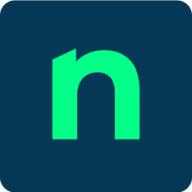

NinjaOne and Splunk Cloud Platform compete in the IT management and data analytics sector. NinjaOne excels with its user-friendly approach, while Splunk Cloud Platform benefits from its comprehensive features.
Features: NinjaOne supports robust remote management, software deployment, and custom script execution, enriched by thorough event logging and a powerful mobile app for immediate alerts. Splunk Cloud Platform distinguishes itself with extensive log aggregation, real-time transaction monitoring, and superior data analytics through its powerful dashboard and search capabilities.
Room for Improvement: NinjaOne could enhance its third-party integrations, reporting, and ticketing features, along with addressing configuration dependencies and ticket response delays. Splunk Cloud Platform requires improved integration capabilities and performance in scaling, with users seeking a more intuitive interface and better support responsiveness.
Ease of Deployment and Customer Service: Both NinjaOne and Splunk Cloud Platform offer flexibility in deployment across cloud environments. NinjaOne is praised for its community support and escalation processes, whereas Splunk is acknowledged for its onboarding, though it suffers from issues in support responsiveness and deployment.
Pricing and ROI: NinjaOne's flexible pricing makes it attractive to small and medium businesses, providing rapid ROI through productivity gains and cost savings. Splunk Cloud Platform is considered expensive, but its robust features and transformative impact on data management and security justify the cost, with ROI dependent on usage scale.
NinjaOne enables significant time savings, reducing my workload by 40% to 50%, primarily due to remote management capabilities.
The customer support at NinjaOne is excellent, rated ten out of ten.
Our experience with escalation supports, including auto escalation to third-level or engineering support, has been very positive.
I rate customer service and support for NinjaOne at seven out of ten due to slow response times.
Premium support is costly and may not always provide a satisfactory experience.
I would rate the scalability of NinjaOne as ten out of ten.
The design suggests it is scalable.
I would rate the stability a ten out of ten.
Security and reporting, including business intelligence tools, are adequate.
The inclusion of XENServer and Proxmox as virtual platforms in NinjaOne is currently missing.
The network monitoring needs to be improved.
Splunk Cloud Platform needs improvement in its security offerings, specifically in cybersecurity.
The pricing for NinjaOne is appropriate for small companies.
NinjaOne is reasonably priced, particularly with the inclusion of TeamViewer, SentinelOne, and Bitdefender.
The price or licensing of NinjaOne is a little bit high.
Splunk Cloud is considered too expensive, with its two product offerings both being costly.
A significant feature of NinjaOne is its remote access capability, which is essential for my clients’ home office usage.
The software's automation tools have solved critical deployment problems for small businesses.
Every month, every quarter, I see new features, and it is always evolving.
The most valuable feature of Splunk Cloud Platform is its robustness and ability to ingest logs.


NinjaOne automates the hardest parts of IT, delivering visibility, security, and control over all endpoints for more than 20,000 customers.The NinjaOne automated endpoint management platform is proven to increase productivity, reduce security risk, and lower costs for IT teams and managed service providers. The company seamlessly integrates with a wide range of IT and security technologies. NinjaOne is obsessed with customer success and provides free and unlimited onboarding, training, and support. - Learn more here: https://www.ninjaone.com/
Splunk Cloud Platform is widely used for log management, security monitoring, application performance monitoring, troubleshooting, data aggregation, and IT operations. It centralizes logs from numerous sources, enabling detailed analysis, incident detection, and effective dashboard creation.
Companies across various industries leverage Splunk Cloud Platform for cybersecurity, compliance, user activity monitoring, and alerts. It helps in managing cloud environments, optimizing data storage costs, and enhancing customer insights with effective data visualization. The platform's robust capabilities include customizable reporting, flexible log sending, powerful search features, and seamless integration with other systems. Users monitor multiple environments and platforms effortlessly with the cloud infrastructure maintained by Splunk. Despite its advantages, users find the pricing steep, support ineffective, and encounter performance issues with large data volumes. Integration challenges, limited training resources, and insufficient documentation also pose concerns.
What are the most important features of Splunk Cloud Platform?Splunk Cloud Platform is implemented across industries including finance, healthcare, retail, and technology. Organizations use it to enhance cybersecurity measures, meet compliance requirements, monitor user activities, and issue automated alerts. In finance, it assists in fraud detection and compliance. In healthcare, it ensures data security and regulatory adherence. Retailers use it for customer behavior analysis and performance monitoring, while technology companies benefit from its troubleshooting and log management capabilities. Despite its powerful features, companies face challenges with pricing, support, and integration that require consideration during implementation.
We monitor all IT Alerting and Incident Management reviews to prevent fraudulent reviews and keep review quality high. We do not post reviews by company employees or direct competitors. We validate each review for authenticity via cross-reference with LinkedIn, and personal follow-up with the reviewer when necessary.